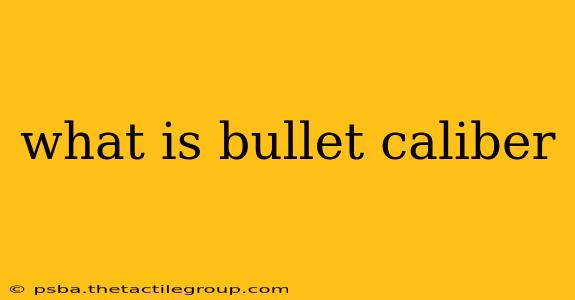Bullet caliber is a crucial specification for any firearm, representing the diameter of the projectile, or bullet, it fires. Understanding caliber is essential for anyone interested in firearms, from hunters and sport shooters to collectors and enthusiasts. This guide will delve into the intricacies of bullet caliber, clarifying common misconceptions and providing a comprehensive overview.
Defining Bullet Caliber: More Than Just a Number
Caliber is typically expressed in fractions of an inch (e.g., .22, .38, .45) or millimeters (e.g., 9mm, 7.62mm). However, it's crucial to understand that caliber doesn't always directly correspond to the bullet's actual diameter. This is due to several factors:
-
Measurement Method: Caliber can refer to the diameter of the bore (the inside of the gun barrel), the groove diameter (the distance between the lands—the raised portions of the barrel's rifling), or the bullet diameter itself. These measurements often differ slightly.
-
Nominal vs. Actual: The stated caliber is often a nominal value, a rounded-off figure for simplicity. Actual measurements can vary slightly due to manufacturing tolerances.
-
Rifling: The rifling in the barrel, which imparts spin to the bullet for stability, further complicates direct diameter measurement. The bullet's diameter may be slightly larger than the bore to ensure proper engagement with the rifling.
Common Caliber Misconceptions
Several common misconceptions surround bullet caliber:
-
Larger Caliber = More Powerful: While generally true, this isn't always the case. A larger caliber bullet might have more mass, leading to greater kinetic energy, but other factors like bullet velocity, shape, and construction significantly influence power. A smaller-caliber bullet fired at a higher velocity can potentially have more stopping power than a larger, slower-moving bullet.
-
Caliber Determines Gun Type: The caliber is a characteristic of the ammunition, not solely the firearm. Many firearms can be chambered for multiple calibers, often through simple barrel changes.
Why is Understanding Caliber Important?
Understanding bullet caliber is critical for several reasons:
-
Ammunition Selection: Choosing the correct ammunition is paramount for safety and performance. Using the wrong caliber ammunition in a firearm can cause serious damage to the weapon and injury to the user.
-
Ballistics: Caliber is a fundamental factor in determining a bullet's ballistic properties, influencing its trajectory, accuracy, and range.
-
Firearm Maintenance: Proper maintenance often requires knowing the firearm's caliber to select appropriate cleaning tools and solvents.
-
Legal Compliance: In many jurisdictions, firearm ownership and ammunition purchase are regulated, often based on caliber restrictions.
Conclusion: A Deeper Dive into Firearm Knowledge
Bullet caliber is more than just a number; it's a crucial specification that speaks volumes about a firearm's capabilities and the ammunition it requires. Understanding the nuances of caliber measurement and its impact on ballistic performance is essential for safe and responsible firearm handling. Further research into specific calibers and their applications will enhance your knowledge and appreciation of the world of firearms. Remember always to prioritize safety and consult with experienced firearms professionals for guidance.

